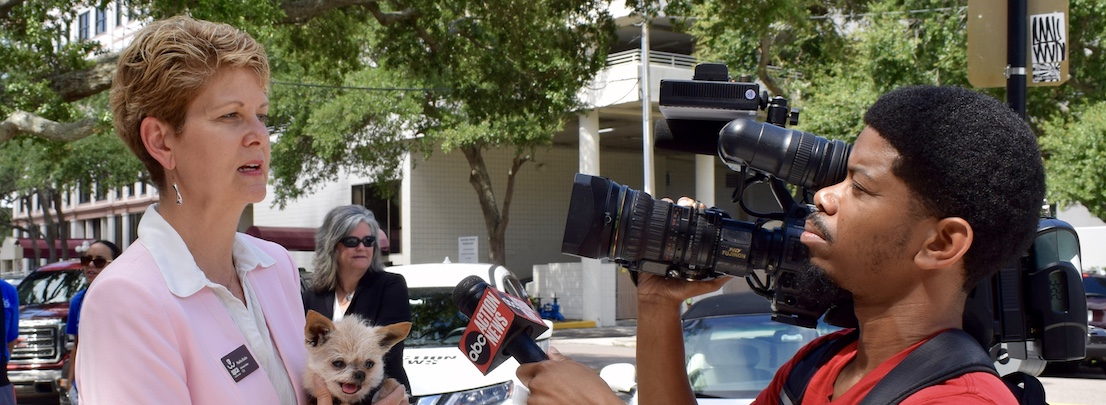
In my 22 years as a newspaper reporter and editor, I had plenty of good experiences with helpful public relations professionals who were invaluable to me as I did my job.
Unfortunately, I also ran into PR folks who were so annoying and unhelpful that I’d blacklist them, politely asking them to never contact me again.
At B2, we’re often asked by clients and other PR professionals about how to work with reporters. With this in mind, here are some important tips on how to work with reporters:
Dos
- Pay attention to the news. Read or watch the news to understand what topics media outlets cover and what’s considered newsworthy. Topics like an organizational anniversary may feel like big news to your company, but the newsworthy part may be the strategies that have kept organization successful or how the organization is pivoting to position itself for future success.
- Be helpful, whether it has a direct benefit to your organization or not. We often offer reporters story tips about industry or local trends, or help reporters find sources for stories that don’t have a direct benefit for our clients. This approach helps in building a solid relationship and shows the reporter that you know what’s newsworthy and that you’re a trustworthy source.
- Know you can always say something. There will be times when you can’t comment on a topic. You might not be the best source for the information. It may be too early to speculate on a situation. Or the question may relate to information that’s proprietary or private. Regardless, say something beyond “no comment” and tell the reporter why you aren’t able to discuss it. If you can, try to find ways to help reporters, like connecting them to other sources who could discuss the topic.
- Illustrate your point. Use facts and examples to illustrate your points when you talk with the reporter: This provides clarity, context and interest for readers and viewers. As an example, a reporter may want to talk with people who use your product or service. Don’t see that as a hassle. Instead, realize this could be a powerful testimonial that you’d want to see in the news.
Don’ts
- Don’t use one-word answers. Answering questions with just “yes” or “no” doesn’t give the reporter context, and doesn’t let you share your expertise. Be an expert source by providing examples and facts that support your answers.
- Don’t ghost the reporter. Ignoring a call or email from a reporter is one of the best ways to get blacklisted. News moves quickly, and being available is a key to being a part of the story. Return the reporter’s call promptly, even if it’s to schedule time on a different day due to your schedule.
- Don’t only talk to the news media when your news is good. For successful media relations, your organization needs to be willing to talk whether the news about you is positive or negative. Reporters won’t be interested in writing favorable stories about your organization if you are constantly saying “no comment” or don’t respond when they are working on a less favorable story.
- Don’t ask for corrections to a story that is factually correct. A great way to wreck a relationship is to ask a reporter or editor to change a story that has accurate information. Certainly, if information is wrong, ask for a fix immediately – the beauty of digital media is how quickly mistakes can be corrected. But don’t ask for a rewrite or word changes if the angle is not what you would prefer. Instead, focus on providing solid, accurate information upfront that backs up your thoughts and opinions on the topic.
